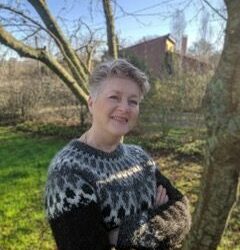Essential Training and Career Development
We offer workshops and webinars designed to help pre-docs, post-docs, and PIs improve their paper and grant writing skills. Our expert editors guide you through the intricacies of scientific writing, providing valuable insights and feedback tailored to your specific work. Spending time with an experienced editor means you can ask the questions that matter most to you, receiving direct, constructive feedback on your own projects. Whether you’re refining your manuscript or preparing a grant proposal, we’re here to help you elevate your writing to the next level.
Improve your writing skills and learn to communicate more effectively.
Learn from former Nature Masterclass presenters, former journal editors, grants specialists, academic directors.
Topics include Advanced Manuscript Writing, Illustrations, Writing Specific Aims (NIH), Handling Rejection.
We offer in-person and virtual webinars and workshops.
I found the workshop incredibly helpful, and am now more confident in navigating the publication and peer review process.
I was originally struggling with figuring out where to start. But now, I have a well-planned structure and flow to help me speed up the writing process.
Wonderful session. Dr. Wilson did a great job breaking down the different tasks and how to address each aspect of grant writing.
OUR WORKSHOPS
In short, our workshops focus on manuscript writing and grant writing, offering hands-on exercises, personalized coaching, and valuable feedback. Each session includes interactive in-class activities, individual coaching, and optional homework to reinforce learning.
These one to two-day workshops are designed for PhD students, post-docs, and PIs and are targeted to around 20 participants for a more personalized experience. Get the tools you need to improve your writing and boost your success in academic publishing and grant applications.
Master the Art of Scientific Writing
Select a Host for More Details:
-

Michele Marass

Michele Marass
Michele teaches in-depth, participatory workshops based on his experience as a Nature Masterclass host that usually comprise two 5-hour days. Participants learn important writing tips from a scientific editor, with a focus on the most crucial parts of a manuscript and how to build a convincing narrative. Michele provides an overview of the publication landscape, the peer review process, and the reasoning behind editorial decisions. He includes interactive activities such as “Choose the best title” and “In the Editor’s mind,” and has added material on AI (pitfalls and possibilities).
-

Stephen Matheson

Stephen Matheson
Stephen teaches participatory writing workshops based on ten years of leadership in the Cold Spring Harbor Laboratory Scientific Writing Retreat, in one- and two-day formats. The overall theme: good scientific writing is just good writing. Typically, participants bring something they are currently writing, which they revise and resubmit based on instruction and feedback. Stephen’s instructional topics include: 1) numerous writing tips from the CSHL retreat, based partly on the ancient wisdom of “know thyself”; 2) elements of a good abstract with real-time critique and revision; 3) practicing audience-centered writing and thought; 4) exploring AI tools (promises and pitfalls); and 5) creating some drama while providing guideposts. The one-day workshop involves two 3-hour sessions; in the two-day format, each day involves five hours in class. Both formats include written feedback from Stephen, after the workshop has ended, on participants’ work.
-

Brandi Mattson

Brandi Mattson
Brandi offers in-depth, participatory workshops and talks tailored to the needs of scientists across career stages, from senior graduate students to senior faculty. Sessions are interactive and impactful, focusing on real-world skills and strategies to advance participants’ careers and research programs. Formats can range from single-day workshops to multi-day events. Sessions include guided exercises, peer feedback, and optional personalized coaching. Learn tips on scientific manuscript writing and publishing, grant writing from insights working at journals, philanthropies, and academic medical centers – from a life from the bench to science strategy delivered at leading global institutes, societies, and conferences.
-

Carol Featherstone

Carol Featherstone
Carol teaches in-depth, participatory workshops that can comprise a single full day or up to three partial days. Before the workshop, participants nominate articles that they found clear and compelling, and these papers serve as examples for analysis and discussion.
OUR TALKS AND MINI-WORKSHOPS
Manuscript Writing
Grant Writing
Careers
Illustrations
Our Talks and Mini-Workshops range from one to three hours and can accommodate unlimited participants. These sessions can be delivered in-person for a more interactive experience. Perfect for groups looking to enhance their writing and illustration skills, whether it’s for manuscripts, grants, or scientific communication. We also offer career talks with journal editors and scientific illustrators, providing valuable insights for those exploring career opportunities outside of academia.
Advanced manuscript writing
Insiders guide to publishing
Writing abstracts
Handling rejection
General grant writing
Writing specific aims (NIH)
Career talk (illustrator)
Figures and Graphics